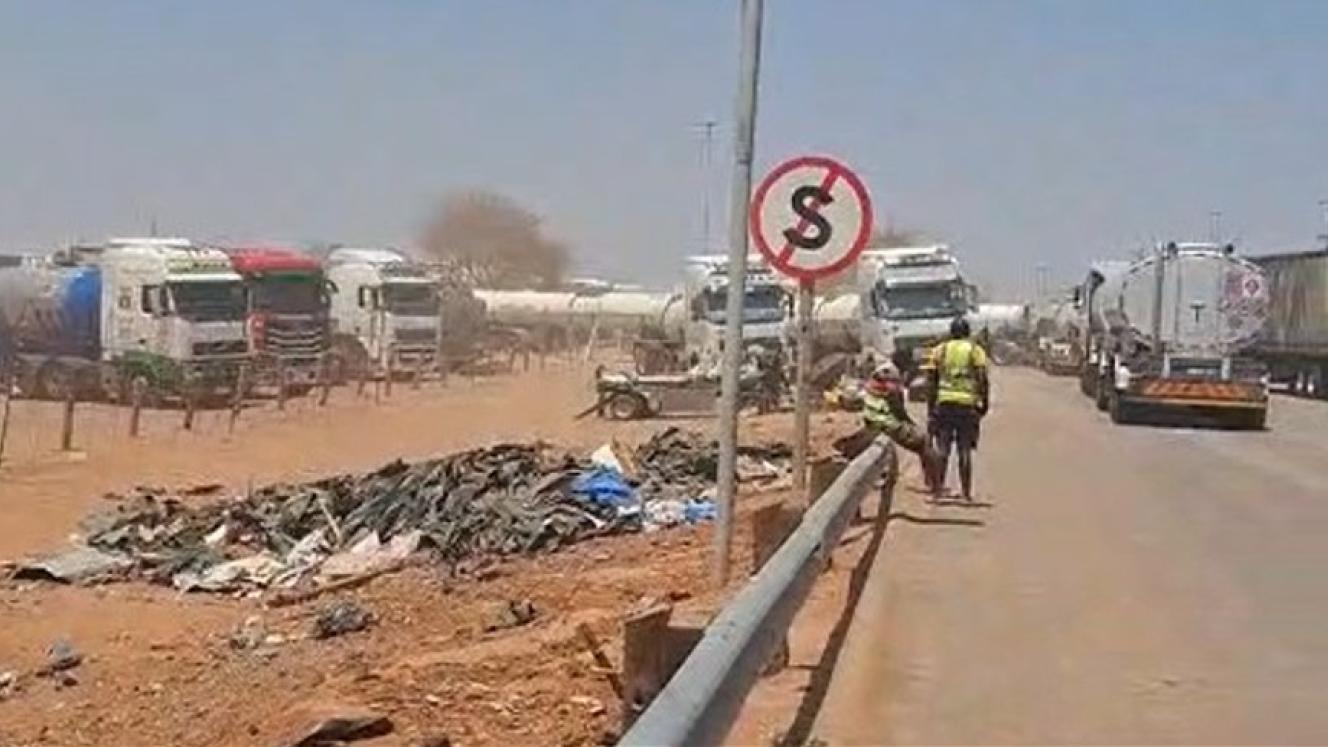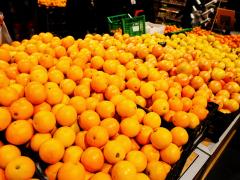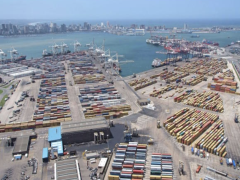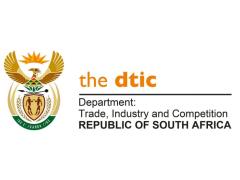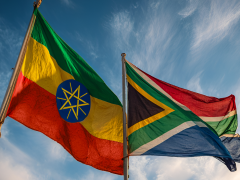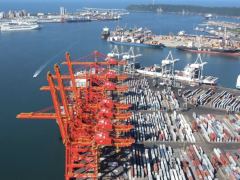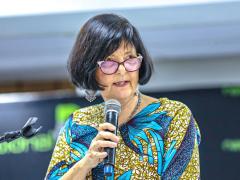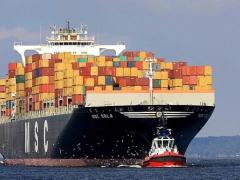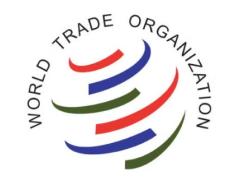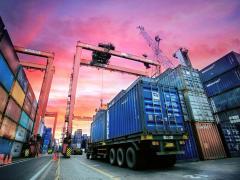Two aircraft based at JIA AFRICAN INTERNATIONAL Airways (AIA) has based two of its fleet of freighters at Johannesburg International Airport, making it the largest private fleet operator flying from a South African base. A third freighter is available when required to supplement local demands. The airline, which for logistical purposes was established in Swaziland in 1985, initially operated scheduled cargo routes under contract to established international carriers. "That has changed now," says business development manager Lynda Longmore. "As scheduled airlines increasingly expanded their bellyload capacity with wide-bodied aircraft, AIA started focusing on alternative niche markets. The airline has now developed an internationally recognised identity as a global air cargo operator without being bound to schedules and covering a wide variety of cargo. "This has included animals, all types of dry cargo from humanitarian relief goods to motor spares, and perishables," she says. In addition AIA recently entered into an alliance with the S.A. Executive Aerospace Group which operates a fleet of HS748. The two companies are closely collaborating in the development of new cargo markets and trade links. "We are now providing increased capacity for exporters in particular," says South African director Pat Corbin. "We have contacts all over the world for cargo movements and it is working out very well. As an example, we recently dispatched an aircraft loaded to Seychelles. After discharging its cargo, it flew on to Delhi to load for a UK destination. Scheduled airlines cannot do that, and it is this type of connection that is making our service these days so viable. Most wouldn't be too eager to fly a load to the Seychelles knowing there is little to fill up with there to make their ongoing flight worthwhile." AIA provided the first UN humanitarian service into the volcano devastated city of Goma in Central Africa last year, and last weekend watched a load of 108 ostriches fly out of JIA for Turkey where they arrived the next morning, to be followed by an immediate e-mail from the client who advised all had been landed in 'very good condition.' "It's everything from cattle to catalytic converters going into Africa and off to the US whenever the service is required," says Corbin.
